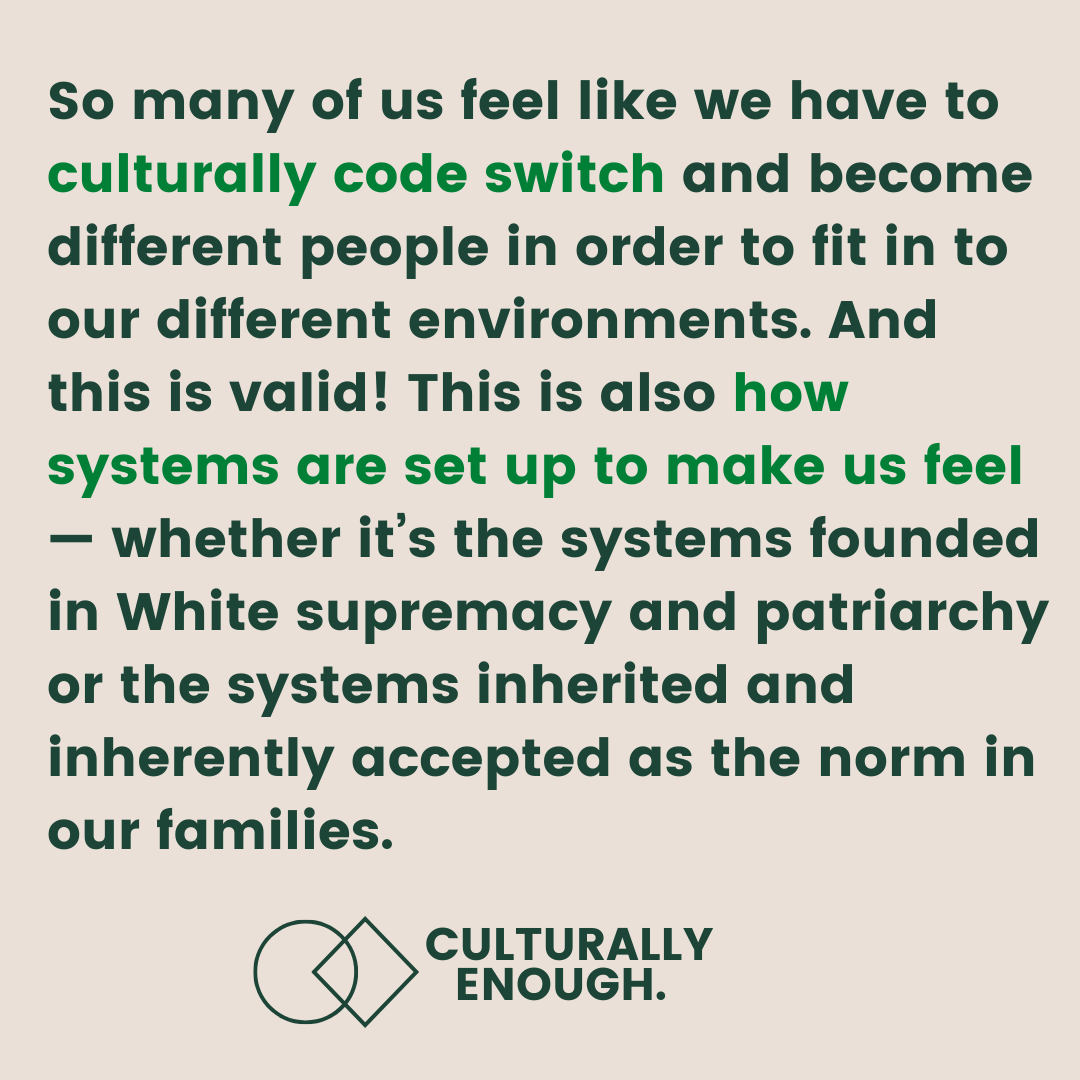Belonging, Identity and Bicultural Confidence
And how to move away from: "I don't fit in. I don't know who I am."
Studies suggest that biculturalism is achieved through a level of proficiency and comfort in the differing cultures (heritage, or host) a person encompasses. Yet I hear from many immigrants, children of immigrants, and bi/multiracial folks regarding how uncomfortable they can feel in their cultural identity.
Earlier this week, I asked you all in the BGT community on Instagram how you felt about your bicultural or multicultural identity, and the response was eye-opening. Of about 1,000 respondents, 23% of you said you feel solely pride toward your cultural identity; however, 26% said you feel either shame or confused, and more than 50% said you feel all three of the above.
When I explored further and asked about the main struggles you experience in your bicultural identity, hundreds of you said some version of “not fitting in” or “not knowing who I am.”
This is a common feeling. When it feels like you don't necessarily belong in any community, performative (and inauthentic) identity behaviors may feel like the only thing creating a sense of belonging and connection to a community.
As a bicultural or multicultural person, you may even curate parts of your image and how you act/what you say in certain environments because you fear your wholeness being rejected -- by either your cultural community because you're not “cultural” enough or your American community because you're still categorized as an "other."
Belonging is a part of our self-esteem and impacts our levels of confidence. Yet existing between two contrasting cultures may create an inconsistent sense of self.
This may be a result of parents, family, or community members expecting you to act, dress, speak, or behave in certain ways. This may also be a result of certain experiences you had growing up — depending on where you were geographically and how diverse (or not) your community and schools were.
So many of us feel like we have to culturally code switch and become different people in order to fit in to our different environments. And this is valid! This is also how systems are set up to make us feel — whether it’s the systems founded in White supremacy and patriarchy or the systems inherited and inherently accepted as the norm in our families.
None of this is to undermine how you may have felt othered or invalidated in your life or relationships. These are real hardships that require deeper and sometimes professional assistance to process.
However, there are pockets within yourself you can explore and reflect on. Here are a few questions to get you started:
Whose cultural definitions and expectations are you living by? Whom are are you seeking validation from?
For instance, I have often measured my worthiness as an Indian women by my parents’ definitions of how an Indian woman acts, behaves, speaks, and interacts. I have also failed miserably, causing me to be “too sensitive” or “too opinionated” or “not amenable enough” or “scary” as I mentioned in my last post. Exploring this has allowed me to separate my worthiness and my cultural identity from the expectations and definitions they uphold.
At what point will you know you are “culturally enough”?
Often people who don’t feel enough are unable to articulate a tangible goal that will make them feel “enough.” The truth is, you may be setting unrealistic expectations for yourself deepening your feelings of self-doubt and unworthiness. The goalposts may always be moving, but you are enough. You already are enough.
Alternatively, this question may bring to light environments and people where you feel culturally invalidated which may require you to reevaluate your relationship and energy in these spaces.
How do certain values and norms serve you or cost you? Even more, what’s at stake for others who uphold certain expectations and values?
It’s important to consider where certain cultural values come from, who they benefit, and how they do or don’t serve you.
Straddling between pride and shame
Our social and cultural identity allows us to be a part of a group and to discover a sense of belonging — something that we all as humans innately crave. Group membership allows us to feel bound to something bigger than ourselves and can be a source of community and pride.
However, many people I have worked with or have heard from who are straddling two or more differing cultures are often also straddling between pride and shame.
In fact, self-esteem levels can be dependent on how well we fulfill the values of our culture (say, how well you feel like you act in line with your heritage cultural norms at home and how well you feel like you act in line with your host culture at work). And even more, if your heritage culture is inherently group-oriented or collectivist, you may be more likely to experience levels of shame for not embracing the culture as wholly as your parents, family, or community. This may feel like a betrayal.
We contract when we feel ashamed of who we are and where we come from, and this shame causes us to experience self-doubt and a lack of confidence. However, we expand when we feel pride in who we are and where we come from, and this pride encourages us to embrace confidence and to take up space. They’re both cyclical and often can be initiated by a single experience.
Keep reading with a 7-day free trial
Subscribe to Culturally Enough. to keep reading this post and get 7 days of free access to the full post archives.




